Interview: Composer Michael Abels on "Nope" and "Chevalier"
 Tuesday, January 17, 2023 at 9:00AM
Tuesday, January 17, 2023 at 9:00AM by Nathaniel R
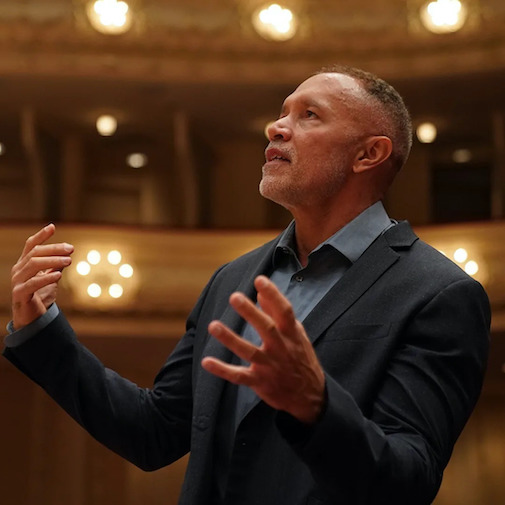 MIchael Abels photographed for the LA OperaOne of the most exciting film composers to gain prominence in the past decade is Michael Abels. He's received multiple nominations for his work and prizes, too like the Jerry Goldsmith Award and the World Soundtrack Award. We wait impatiently for an Oscar nomination to follow, given his memorable inventive scores that have played such a huge part in the mass appeal of the films of Jordan Peele. We were honored to sit down with him to talk about his diverse interests in musical genres, his history with piano and voice, his Nope score, and what's next.
MIchael Abels photographed for the LA OperaOne of the most exciting film composers to gain prominence in the past decade is Michael Abels. He's received multiple nominations for his work and prizes, too like the Jerry Goldsmith Award and the World Soundtrack Award. We wait impatiently for an Oscar nomination to follow, given his memorable inventive scores that have played such a huge part in the mass appeal of the films of Jordan Peele. We were honored to sit down with him to talk about his diverse interests in musical genres, his history with piano and voice, his Nope score, and what's next.
This interview has been edited and condensed for clarity...
NATHANIEL: For those of us who aren't musically gifted, it can be hard to have the language and literacy to really talk about music. Is this a challenge with directors? Are they able to speak the language or do they just ask you for general "vibes"?
MICHAEL ABELS: Well, everybody loves music, and everybody has a whole history of growing up and hearing and identifying and falling in love with certain music. So it doesn't matter whether you have musical language,. It is really about the feeling.
I always encourage directors to speak to me as they would an actor or a cinematographer, someone with whom they feel like they do have a shared language. To just use the language that is natural for them: emotion and action and a dramatic narrative journey that a character's on. And then it's my job as the composer to translate that -- to be bilingual in that sense and to know what the musical translation of those feelings or actions or ideas would be.
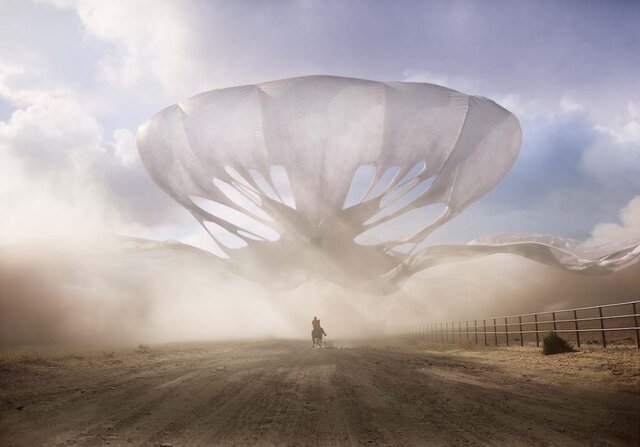 Nope (2022)
Nope (2022)
Your current film score, Nope. You've used a lot of strings and it's a much grander score in some ways than your earlier work. Did the action spectacle elements present a new challenge?
MICHAEL ABELS: For me personally, I've always been fascinated by different genres of music. Meaning, like what makes them sound so different given that it's all the same underneath, you know? So I've always -- as a part of figuring out what each genre is to me -- tried to write in different styles. As a result the size of Nope wasn't brand new. But it is a very big film in terms of the feeling when you watch it. It was shot on IMAX cameras and it is really an adventure.
Adventures have a certain sweep to their scores. They present a world that's larger than life. And so that was important to bring out so that the score matched the film. And Jordan very much wanted that. When the film finally works its way toward becoming the adventure that it is, he wanted to make sure the score was there to meet that expectation.
In addition to Nope you recently co-composed the opera "Omar. A lot of your scores already have choral music in them. Have you always been vocally inclined?
Yeah. I grew up singing in choirs as a child. That part comes very naturally to me as a result. I sing when I write. It's just a very natural way to express something. Your voice is the first instrument.
So I've been able to write for voice and have singers respond to my work. It's very gratifying to have ideas and set them to muscic. The new opera, as you know, I co-wrote with Rhiannon Giddens, who is a Grammy winning singer/songwriter and who has won the MacArthur Genius award among other things.
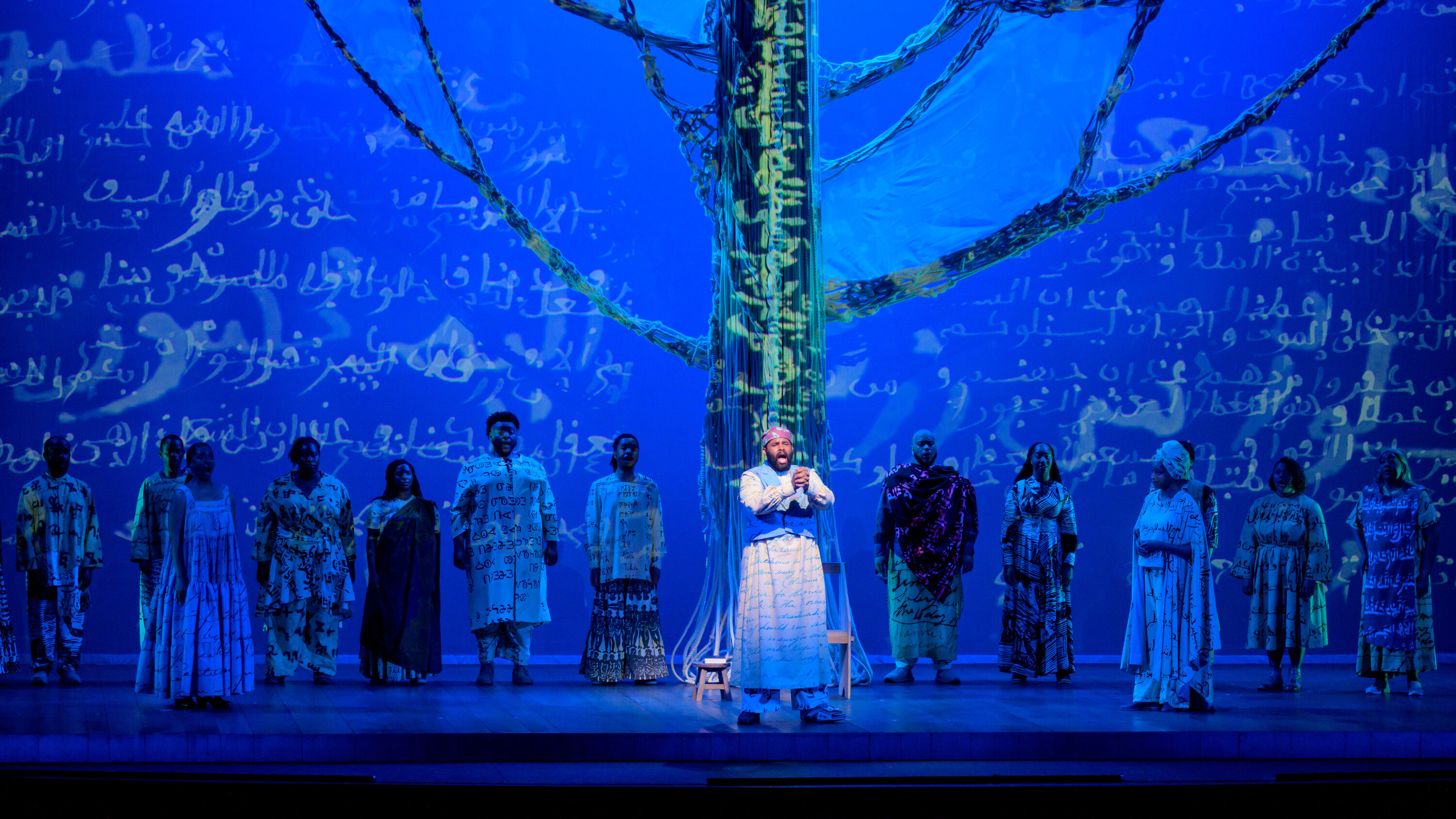 "Omar" at the Spoleto Festival this past summer. Photo by Leigh Webber / Spoleto Festival USA
"Omar" at the Spoleto Festival this past summer. Photo by Leigh Webber / Spoleto Festival USA
I listened to some of her stuff a couple of years ago after chancing upon an interview with her. She's incredible.
The way she writes is very much through her voice. And so I feel like all of the music of the opera is just immensely singable, you know.
But since you usually write alone how did it feel to combine your voice with someone elses?
It was surprisingly easy and I think there's a couple reasons. One is that, you know, film scores are always a collaboration. Its my name on the score but I'm writing the music that tells the character's story through the director's ear. I'm always getting notes from the director and trying to make the music match the way they envision the story.
But in the case of Rhiannon, I think when we first started talking about working together, it was clear that we had similar ideas about what an opera should be like. She's actually a trained opera singer. I could clearly hear her vision. And we made some other choices, like, the vocal lines being very singable and very natural. She sings every day, in public. I sing every day, but in private. The opera is about an enslaved Senegalese Muslim in the Carolinas who ended up writing his autobiography. We made the choice not to rely primarily on orchestral instruments.
The voice instead.
Even though it was about things that aren't necessarily seen in opera, we wanted everyone to understand that it is an opera. And even with the other musical influences and genres that we incorporated, we wanted it all to feel like an opera and exist in that space.
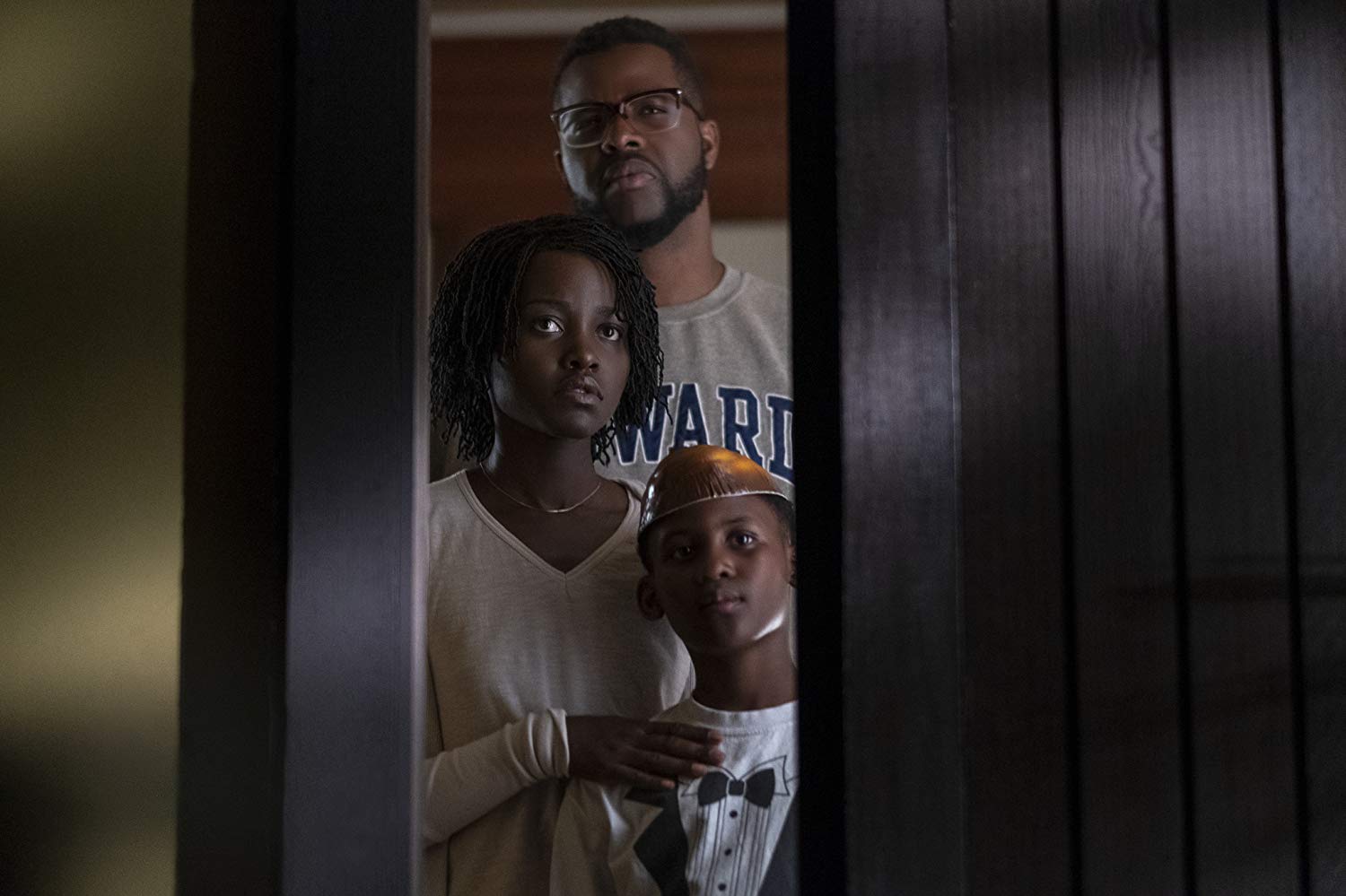 US (2019)
US (2019)
Listening to you talk about Rhiannon I remembered that a few film scores ago you were working heavily with pre-existing material in Us (2019). Especially combining a classic song with new material. Is that also a collaboration of sorts?
Absolutely. I would say that it is. With the example you're talking about "I Got Five On It" in Us, you're taking something that exists and has been fixed and done, and taking it to another place.
You've done other concert works before "Omar" but when it comes to film scoring, which is what you're most famous for, do think people think of you as...
The Jordan Peele guy, yeah.
Yeah. But you also have done other movies like Breaking and Bad Education. Do you want to keep going back and forth between concerts, operas, and film scores? Do you like the variety?
I do. I always wanted to compose. I wanted to do everything, the medium didn't matter to me. It was just the idea of creating music. It's a privilege and a gift, and music is magic. You know, we don't really understand why it affects us the way it does, and who would really want to understand that magic anyway? The magic is the delight in it. I just like interesting projects and storytelling. Even concert music is storytelling in a much more metaphorical sense. To the extent that I have chances to do projects that are creatively interesting, I feel lucky. You'll find me writing music in unexpected places, maybe.
I think this all leads to the natural place: you should write a movie musical!
Oh, wow. Well, I would like to write a musical. That's on my bucket list. And whether that starts as a movie or not, I'd just be happy for it to be performed, let alone where, or on the screen.
I'm totally sold on this idea. You've done opera. You've taken classic material and made it fresh again. It's a natural fit!
Well, great. Thank you. Next year I have a film called Chevalier. I didn't do the score, I did the on-camera music because it's about a composer. It's not a musical, but of course there's a lot of music in the story, and so I'm inching closer to what you're suggesting!
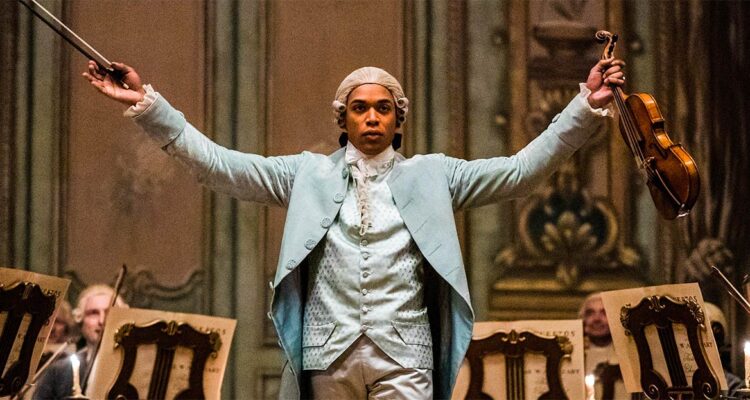 CHEVALIER (2023)
CHEVALIER (2023)
Can't wait to see that. But when you say you're doing on camera music vs the score, does that mean your the "voice" of his compositions to speak?
I mean it's about Chevalier de Saint-Georges, so there's his music too. But you see him composing and you see him playing and improvising. So there was a need for someone to actually write the music that fits the moment of what the character is experiencing. And then there's some adapting and arranging of his music. So I was straddling the line between writing and arranging.
Oh, that's very cool. I should have asked this at the beginning but let's return there. When did you know you wanted to be a composer? Were you surrounded by music? Or how did you discover it?
I was lucky to have a spinet piano when I was very young. I was being raised by my grandparents. I tried to play "Do Re Mi" and it didn't come out right. And I was like 'Why can't I play?' I just assumed that everyone could play... or at least that I could. So i started taking lessons and I tried to write something at eight years old.
Wow.
... and I got stuck. But then at 13 I finished some music. I had the experience of being stuck and then getting unstuck. Then I was hooked. I just thought 'This is super!' It's challenging and the results make you feel like you've really done something

Nope is one of the finalists for Best Original Score at the Oscars. Nope is available to stream on Peacock and is rentable on most other services.
 Chevalier,
Chevalier,  Jordan Peele,
Jordan Peele,  Michael Abels,
Michael Abels,  Nope,
Nope,  Us,
Us,  composers,
composers,  interview,
interview,  sci-fi fantasy
sci-fi fantasy 


Reader Comments (2)
This was such a treat to read. I'm a big fan of his work and really hoping he scores his first Oscar nomination for NOPE!
Thanks for the review and such a great post, I'm really impressed. Keep giving us things like this quordle